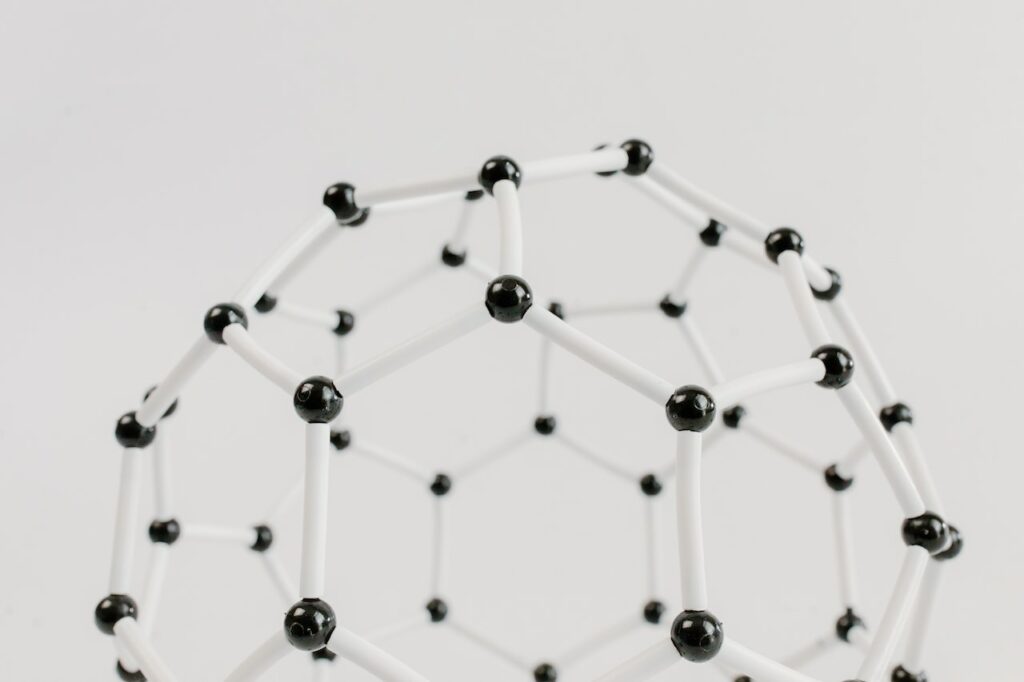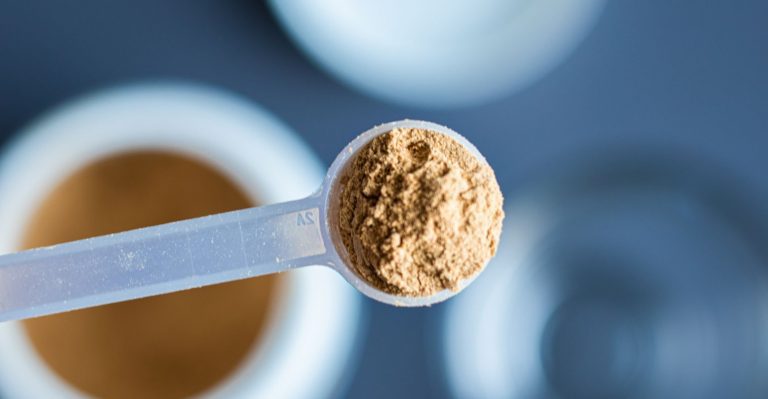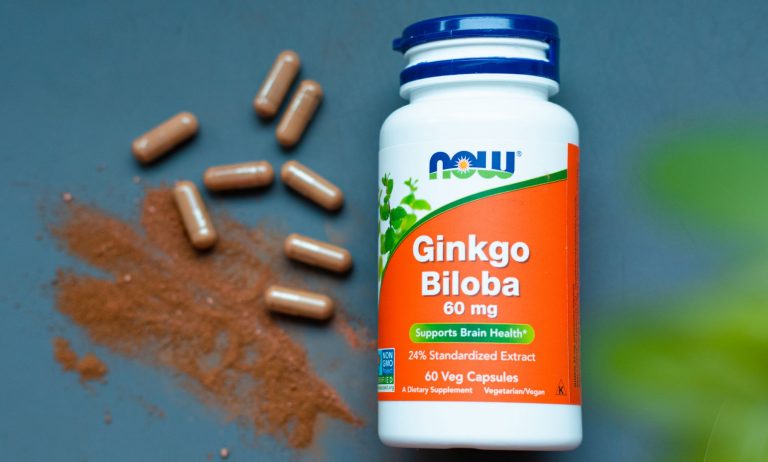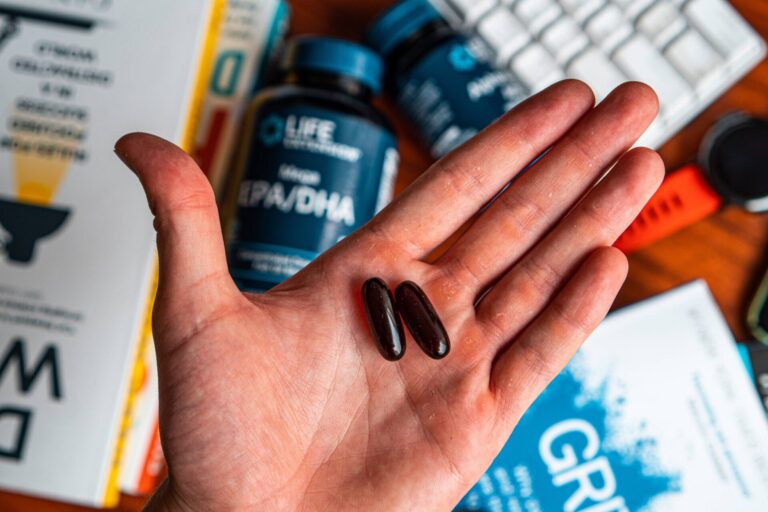14 Benefits of Caffeine: Focus, Cognition, & Neuroprotection
Caffeine is one of the most potent natural stimulants that can increase alertness and focus. If you’re interested in the health benefits of caffeine, this is the right article for you.
Found in Coffee beans, this compound is also present in energy drinks, dark chocolate, and green teas. But what are the exact effects and benefits of caffeine on the body, can you overdose on caffeine, and what potential side effects it may cause. Let’s find out.
What is Caffeine?
There are three important facts about caffeine:
- Caffeine is a natural compound found in coffee, green teas, and Gotu Kola.
- It is one of the most popular and widely used psychoactive drugs in the world.
- Caffeine belongs to the methylxanthine class, it is a white crystalline purine, found in coffee beans.
Caffeine Mechanisms of Action
- The most potent use of caffeine is related to its stimulatory effects.
- Caffeine can stimulate the central nervous system and affect many organs, including the brain.
- When consumed, caffeine gets absorbed from the gut to the bloodstream and it is broken down in the liver.
Caffeine’s most potent effect is promoting alertness. It does this by blocking adenosine receptors, masking your tiredness, and making you feel more energized, awake, and alert.
Being one of the most popular natural psychoactive stimulants people enjoy worldwide, caffeine makes it on our 14 natural cognitive enhancers list for a reason. It makes our brain sharper, cuts reaction time, and improves short-term memory. Voilà.
Other potent natural nootropics to check out – Cordyceps, Bacopa Monnieri, Ginkgo Biloba, and Lions Mane
Caffeine has a similar chemical structure to adenosine, so when it binds to these adenosine receptors, less adenosine can bind to them. Adenosine build-up makes you feel tired and fatigued.
Caffeine Effects on the Body
| Potential Effects – sympathetic NS stimulation | Side Effects – slow caffeine metabolizers |
| Increased heart rate | Shakiness |
| Improved focus and alertness | Dizziness |
| Raising blood pressure | Headache |
| Jitteriness, Shakiness | Irritability |
| Increased energy | Heartburn, Agitation |
How Much Caffeine In A Cup Of Coffee
Since there are many different types of coffee drinks out there, if you are constantly consuming coffee outside it is good to ask for caffeine content information, to monitor your caffeine intake.
Of course, one small espresso will differ in caffeine from an Iced White Chocolate Mocha, Pumpkin Spice Latte, or a Java Chip Frappuccino from Starbucks. This is why it is best to know what is in your drink.
In 100 grams of coffee beans, there is 40 mg of caffeine. On average, one cup (8 oz.) of coffee contains around 90 mg of caffeine.
Now the type of coffee beans, roasting process, serving size, and additives will differ in different drinks.
| Type of Coffee | Caffeine Content |
| Café Au Lait | 115 mg |
| Cirty Chai | 145 mg |
| Americano | 150 mg |
| Cappuccino | 75 mg |
| Mocha | 75 mg |
| Decaffeinated coffee | 3-5 mg |
How much caffeine in a cup of coffee??
In 100 grams of coffee beans, there are 1.2-2.2 grams of caffeine. Depending on the type of roasting, serving size and additives, this will differ. On average, an 8 oz. cup of coffee contains around 90 mg of caffeine.
What are the benefits of caffeine?
There is myriad of potential caffeine benefits which include:
– may improve brain performance & cognitive function
– may improve mood
– can exert neuroprotective effects
– can increase exercise performance acutely
– may accelerate fat-loss
– may increase stamina and endurance
– has the potential to boost energy
– has a fatigue-fighting effect
– natural pain-killer effect
– potential anti-cancer properties
– supports healthy skin
– has potent anti-inflammatory activity
– may promote longevity
– may aid in liver detox and protection
Am I drinking too much caffeine?
Safety recommendation for healthy adults range around 300-400 mg of caffeine, as a well-tolerated dose with minimal or no side-effects. Of course, this is a total caffeine intake, not just by drinking coffee. Make sure you also count/monitor the caffeine in colas, sodas, guarana, energy drinks, chocolate, white, green, or black teas, pre-workout supplements, etc.
Top 14 Potential Benefits Of Caffeine
Caffeine is known as one of the most potent stimulants, with powerful antioxidant properties. It is used for a variety of different health benefits, but mostly because of its brain-enhancing properties that come in handy when sleep-deprived or tired.
Coffee beans are a major source of caffeine, which is used to make the most popular, widely consumed drink in the world, coffee. Here, we will take a look at the potential benefits this natural stimulant may offer.
1. Promotes Focus and Alertness
Caffeine can promote alertness by affecting the adenosine receptor.
Using your brain requires a breakdown of energy (ATP) – which leads to the buildup of adenosine molecules that bind to the A1 adenosine receptor. Its accumulation makes us feel tired. Then we sleep – refresh and wake up energized.
Now Caffeine, due to the similar structure can bind to these A1 receptors, blocking them from receiving adenosine, thus making you feel less tired, more awake, alert, and focused.
- Caffeine has potent cognition-supportive effects, which can promote alertness and focus. The effect increases with the dose, but 200-400 mg (lighter dose) can enhance cognition in a short period of sleep deprivation. (1)
- Tested in doses of 0mg, 100mg, 200mg, and 400mg, caffeine improved executive control function – altered in a dose-response manner, interacting with adenosine receptors and dopamine. (2)
- In 20 Special Forces personnel with a sleep restriction of 4h, the addition of 200 mg caffeine improved the number of correct responses to stimuli, increased response speed, and improved detection of events. (3)
summary
By blocking the A1 adenosine receptor, caffeine can promote alertness, and wakefulness, and improve cognition, especially in sleep-deprived people.
2. Improves Brain Performance
In this review of caffeine as a cognitive enhancer, it is said that caffeine only improves memory under sub-optimal alertness and improves passive non-intentional learning. This suggests that caffeine has an indirect effect on improving cognition. (4)
Research has shown that caffeine can potentiate dopamine activity, which plays a major role in learning since it is involved in coding new information. Caffeine was shown to improve memory recall and increase the speed of encoding information. (5)
Memory
Cognition
- For memory improvement, caffeine was tested in young adults. During the non-optimal time of the day, which is early morning, caffeine improved memory performance, which suggests it may help with learning. (6) In comparison to the decaffeinated group, participants in the caffeinated group were significantly more awake.
- In 95 healthy adults, caffeine administration facilitated cognitive tasks and memory recall in users that had moderate to high amounts of caffeine, such as 200 mg. (7)
- At doses up to 300 mg caffeine was potent in improving alertness and cognitive function. Most of its effects rely on blocking A1 and A1a receptors. Effective dosages for physical performance are higher (200-500mg) than effective dosages for cognitive enhancement (40-300mg). (8)
- In this study, caffeine was shown to be a potent stimulant but did not significantly alter cognitive function performance in 24 healthy adults. They concluded that under sleep deprivation or fatigue presence, caffeine can be significantly beneficial for cognitive performance. (9)
summary
Most caffeine cognition improvement was significant in sleep-deprived or tired, fatigued participants. Coffee can then improve memory recall, alertness, learning, and mental performance.

3. May Improve Mood
Caffeine may affect mood in both a positive and negative way.
Excessive caffeine consumption will most likely lead to anxiety, stress, and tension. Lower levels of caffeine that do not cause those side effects, may be beneficial for improving mood due to their effect on Dopamine, the reward hormone.
- Caffeine may increase extracellular dopamine levels due to its ability to block A1 receptors, improving motor and learning abilities. (10)
- As a psychoactive substance, caffeine may enhance dopamine signaling in the brain. At 300 mg it increased the availability of D2/D3 receptors, which may enhance arousal. (11)
- In this observational study (38.223 participants) each cup of caffeine was linearly associated with cutting the risk of depression by 8%. Its potential to boost mood is suggested to be around 68-509 mg/day (12)
- Another study done on Korean adolescents found the opposite effect of caffeine which increased anxiety, depression, and insomnia scores. (13)
summary
There is no strong evidence for coffee’s mood-enhancing properties, however, caffeine may affect the dopaminergic system and enhance mood if it increases dopamine.
4. Brain Neuroprotection
Caffeine may have neuroprotective effects, especially in neurodegenerative diseases.
Caffeine was shown to be beneficial for patients with Alzheimer’s and Parkinson’s disease, as it may reduce the build-up of plaque by reducing amyloid Beta production and increasing its clearance. (14)
Mechanisms behind caffeine’s neuroprotective effects were adenosine receptor antagonism, ryanodine receptor activation, and inhibition of phosphodiesterase. (15)
Caffeine was tested on Caenorhabditis elegans for its neuroprotective effects in excessive dopamine production. Excess dopamine is related to neurodegeneration and caffeine was shown to protect dopaminergic neurons from degeneration via interaction with synergistic adenosine-Dopamine D2-Like receptors. (16)
Caffeine may have neuroprotective properties. It shows potential in reducing the risk of Parkinson’s or Alzheimer’s disease, as there was a correlation between a significantly lowered risk of neurodegenerative diseases and higher caffeine intake. (17) (18)
summary
Caffeine possesses many neuroprotective properties that can reduce the risk of developing neurodegenerative diseases such as Alzheimer’s and Parkinson’s.

5. Increases Exercise Performance
Caffeine is one of the most popular additions to any pre-workout supplement out there.
This is because of its sympathetic nervous system stimulating effect, known as the fight or flight response which can prepare the body for maximal physical performance. Caffeine improves sports performance in many other ways such as:
- Delays fatigue
- Increases energy
- Improves fat metabolism
- Increases glycogen replenishment
- Activates noradrenaline and adrenaline
Testing caffeine and coffee against decaf beverages in 8 trained male cyclists has shown a significant improvement in physical performance, in the group that consumed caffeinated version. (19)
The potential of caffeine to improve physical performance may be due to the fact it creates a better ionic environment intracellularly in the active muscles, which facilitates muscle force production. (20)
This systematic review of 21 meta-analyses in total have shown that caffeine has an ergogenic effect and can increase physical performance, aerobic endurance, jumping performance, power, exercise speed, muscle strength, and endurance. (21)
Fat burning & Glycogen replenishment
Caffeine is known as a great energy booster and fat burner at the same time.
It has been shown that after intake of 250 mg of caffeine orally, levels of free fatty acids have been increased as well as some other catecholamines like epinephrine and dopamine. (22)
Increasing fat oxidation does not just help with fat loss, but with energy production too. This improvement is seen and used in runners, since coffee can accelerate fat oxidation, meaning it saves glycogen and produces energy more efficiently.
Caffeine supplementation can also increase energy expenditure by 13%, disposal of fatty acids, and double the turnover of lipids. (23)
Replenishing glycogen is crucial for athletes, for optimal muscle recovery.
Caffeine has been added to pre-workout supplements for a reason. Caffeine can stimulate glucose uptake in the skeletal muscle at optimal carbohydrate levels. It can increase glycogen re-synthesis, glycogen accumulation after exercise, and glucose levels. (24)
summary
Caffeine can improve physical performance by activating the sympathetic nervous system, reducing or delaying fatigue, and improving glycogen replenishment. It can also help in endurance training due to its ability to increase fat oxidation.
6. Accelerates Fat-Loss & Weight Loss
When it comes to weight loss, you have probably heard of “faster metabolism”. To facilitate weight loss and fat loss, speeding up the metabolism will do you a huge favor, as you’ll burn more calories.
One of the main effects caffeine had in this fourth trial was increased metabolic rate and fat oxidation. Caffeine was efficient both in obese and normal-weight participants. (25)
When it comes to weight loss, energy balance is important. This is the energy expenditure and energy intake ratio. If intake is higher than expenditure, you will gain weight.
Caffeine was shown to improve weight maintenance through increasing thermogenesis, fat oxidation, and energy expenditure while decreasing energy intake suggesting it can be used in weight regulation. (26)
Extra Research: Caffeine on Exercise, Fat Loss, and Stamina
- Aside from speeding up your metabolism, caffeine can prolong exercise, improve stamina, reduce muscle pain, and reduce stress perception, which makes it a great workout supplement. (27)
- When you combine exercise with caffeine, a pleasing effect on fat levels and body weight starts to appear.
- In this study, an investigation done on rats with caffeine and exercise showed that there was a significant reduction in fat-cell diameter, 22% reduction in body weight, and 25% in epididymal fat-cell size. (28)
- Thermogenesis and fat oxidation are believed to be the main mechanisms behind caffeine’s effect on weight loss or weight control. This goes for other caffeinated beverages such as green tea and coffee as well. Consumers of coffee and green tea had healthier weight values. (29)
- Caffeine affected all three major components related to weight and fat loss. In this systematic review and meta-analysis, caffeine intake was associated with a reduction in weight by 22%, BMI by 17%, and body fat by 28%. (30)
summary
Caffeine can accelerate weight loss and fat loss due to its effect on fat oxidation and thermogenesis. It can speed up metabolism and acutely increase energy levels which were associated with a reduction in total body weight, fat level, and BMI.useful
7. May Increase Stamina & Endurance
When it comes to physical performance, besides jumping, sprinting, and lifting as one of the more explosive types of workouts, caffeine was shown to improve long-lasting endurance performance by acting on different mechanisms in the body.
There are numerous studies that show improved exercise performance due to caffeine. It works with sustained high-intensity activity lasting up to 60 minutes. (31) It improved the performance of the results of 40 male endurance-trained cyclists, (32) and can reduce muscle pain, perceived stress, and combats fatigue. (34)
Caffeine has an ergogenic effect and can also influence shorter-lasting bursts of activity such as anaerobic exercise or aerobic-anaerobic exercise lasting up to three minutes. Caffeine improved the endurance of the muscles in the lower body and may enhance calcium mobilization. (33)
By affecting pain and muscle contraction, it is fair to say that physical performance can be improved. Aside from that, caffeine stimulatory effects on catecholamines can set the body in a “fight or flight” state, which increases heart rate and blood flow in the muscles.
summary
Caffeine may affect endurance and stamina not just in long-lasting activities such as cycling or running a marathon but also in anaerobic-aerobic activities up to 3 minutes. It stimulates CNS, and reduces fatigue and perceived pain.
8. Boost Energy Levels
Caffeine is used as a stimulant because of its energy-boosting properties.
Caffeine can have many fatigue-fighting properties that reduce tiredness and perceived exhaustion in humans, making you feel more alive, awake, and alert.
But caffeine is not just used for mental performance, it is also used in improving physical performance.
In fact, when catecholamines like adrenaline and noradrenaline are secreted, the blood flow in your muscles increases, the liver release more sugar into the bloodstream, and your heart starts pumping faster, thus producing more energy acutely.
- Some of its energy-increasing effects are present because caffeine has the ability to increase catecholamine release. (35)
- It turns out that a combination of caffeine and cold exposure while exercising was shown to increase epinephrine and lipid metabolism while decreasing carbohydrate metabolism. (36)
Another big factor influencing energy levels is fatigue. Caffeine was shown to fight fatigue and improve time to exhaustion in cyclists by 12%. While neuromuscular fatigue was not reduced, the perception of it was, which improved performance. (37)
summary
Increased energy following caffeine consumption is mainly due to its catecholamine stimulating effects. Caffeine can reduce perceived fatigue and tiredness, which may make us feel more awake and energized.
9. Pain-killer effect
As a natural painkiller compound with minimal or no side effects, caffeine is worth looking into.
Caffeine improved the pain-killing response of using aspirin, acetaminophen, and ibuprofen, plus lengthened its effects.
In some articles, there was even said that it may be a more potent pain killer than ibuprofen. However, caffeine can be potent in reducing perceived pain, but mainly in pain that originates from sleep deprivation or inflammation. When sleep-deprived, your pain sensitivity changes, and caffeine can help by increasing dopamine, the feel-good hormone. (38)
Caffeine may have an effect on nociception, which is the main function of nerves known as nociceptors. Nocioception is the sensory detection of harmful stimuli in the body, the source of pain. There are different types of pain and nociceptors are trying to pick up any potentially harmful pain.
The mechanism for the potential pain-killing effect of caffeine lies in its ability to modulate adenosine receptors which play role in nociception. (39)
summary
Caffeine may reduce perceived pain by modulating dopamine and nociceptors, the main function is to detect harmful stimuli to the body.
10. Potential Anti-Cancer Properties
There are a lot of coffee drinkers in the world, which makes it easier for doing long-term research based on someone’s reported caffeine intake dosage.
When it comes to anti-cancer properties, caffeine might have some potential. There was an inverse correlation between specific cancer types and caffeine intake.
For example, this review of four cohorts and 5-case control studies found that people who consumed more coffee had a reduced risk of liver cancer. There was a significant difference in the consumption of two cups of coffee per day which reduced the risk of liver cancer by 43%. (40)
- Another research shows that people who enjoyed 4+ cups of coffee a day had significantly lower rates of colon cancer. (41)
- Cutaneous Melanoma, which is one of the most common skin cancers that starts in the pigment-producing cells causes more than 10,000 deaths each year. (42)
- Coffee was shown to have many bioactive compounds that may help in the prevention of cutaneous melanoma. (43)
summary
Coffee may reduce the risk of some types of cancer such as colorectal, skin, and liver cancer. Large cohort studies and reviews show an invert association between caffeine intake and cancer risk, however, this is only a potential caffeine effect that needs more research for strong evidence.
11. Supports Skin Health
Caffeine has also been used in cosmetics to improve skin structure and protect the skin against UV radiation and oxidative stress.
Caffeine has many potent antioxidants that can improve skin regeneration whether applied topically or consumed by drinking coffee.
For cosmetic purposes, caffeine was used as an addition to topical skin formulations for its anti-cellulite effects and prevention of fat accumulation. Caffeine has the ability to penetrate through the skin barrier and stimulate the degradation of fats. Plus it protects the skin and slows down photoaging. (44)
Coffee has also been shown to fight or reduce inflammation in the skin, reducing the risk of skin inflammatory diseases.
In this study, they compared the effects of different topical formations in which the one with caffeine 30% hydrocortisone 0.5 % in a hydrophilic ointment showed improvement in lichenification, excoriation, and global impression. (45)
Caffeine has biological activity and may potentially improve skin looks. It is part of topical formulations because of its ability to increase micro-circulation in the skin and it also stimulates hair growth. (46)
summary
Caffeine was shown to have potential effects on skin regeneration and health, due to improved blood flow in the skin, antioxidant activity, cellulite reduction, and inhibition of phosphodiesterase.

12. Anti-inflammatory & Antioxidant activity
Coffee has been widely known and researched for its antioxidant activity.
It is very interesting that when comparing coffee to green tea, red wine, and cocoa, there were no significant differences in the antioxidant status and total antioxidant content, which puts coffee on the scale of antioxidant-rich foods.
In fact, there were controversial statements about coffee’s antioxidant power that is diminishing due to the roasting process of the beans, but research shows that chlorogenic acid is reduced with roasting while other polymeric compounds that act as antioxidants are formed during the roasting process. (47)
Fun Fact
The highest total antioxidant content (mg/g) was found in Robusta roasted coffee beans originating from Bali and Green unroasted Robusta coffee beans originating from Uganda.
Caffeine was investigated for its effects on athletes (33) running 15 km run. The effect was induced IL-6 and IL-10 and increased lactate which then improved the anti-inflammatory response. (48)
As coffee consumption is increasing, the more chlorogenic acid, caffeine acid, and caffeine we get. In 47 habitual coffee drinkers, coffee was shown to increase HDL and total cholesterol by 7% and 12% respectively. It also had beneficial effects on inflammation, without an effect on glucose metabolism. (49)
Caffeine and both of its catabolic products theobromine and xanthine may exert both pro-inflammatory and anti-inflammatory effects. (50) (51)
summary
Coffee can be a great source of antioxidants and may improve inflammatory response in humans, however, research shows both pro-inflammatory and anti-inflammatory effects of caffeine.
13. Promotes Longevity
The beneficial effects of foods or bioactive compounds on longevity may have a direct effect on gene expression. Longevity can be a side effect of disease prevention, hormone balance, organ and tissue health, and so on.
While caffeine may not have a specific longevity effect, coffee drinkers are known to live longer and cut the risk of several diseases.
- In this large (half a million people) and long (10-year follow-up) study – there was an inverse association between coffee drinking and mortality. (52)
- The EPIC study on more than half a million men and women investigated the association between coffee and mortality. In a long follow-up of 16.4 years, coffee drinkers had a lower mortality rate. Coffee consumption was associated with reduced C-reactive protein and levels of liver enzymes that indicate liver problems if too high. (53)
Further investigation is needed, however, coffee, whether caffeinated or decaf and green tea are associated with a lower risk of diabetes and can exert protective effects. (54)
Caffeine can also have some neuroprotective effects, due to its antioxidant effects. Since it has minimal side effects and it is hard to overdose on it, the conclusion is it is a healthy addition to our diet.
Some neuroprotective effects were seen in Parkinson’s disease, as it had a potent effect to restore both motoric and non-motoric symptoms of Parkinson’s disease. (55)
summary
As an amazing antioxidant, coffee can be a great addition to one’s diet. Its neuroprotective, antioxidant, and anti-inflammatory effects can reduce the risk of certain diseases which can increase lifespan. Higher caffeine intake was associated with a lower mortality rate in long-duration follow-up, large cohort studies that involved up to half-million people
14. Protects the Liver
This plant compound may also be beneficial for combating liver diseases.
Caffeine was shown to exert liver-supporting effects and protect it from inflammation and other diseases.
- Coffee was referred to as “the magical bean for liver disease” in one review, suggesting its hepatoprotective potential and anti-inflammatory effect. (56)
- Even 100 mg of caffeine had shown a potential effect on liver protection from advanced hepatic fibrosis in patients with chronic Hepatitis C infection. (57) (58)
- Caffeine consumption was associated with a significant reduction in the risk of fibrosis in patients with nonalcoholic steatohepatitis. (59)
Due to long-lasting inflammation or injury, excessive amounts of scar tissue can build up in the liver, which is known as hepatic fibrosis or liver fibrosis.
When it comes to coffee vs caffeine, the liver-protecting effect was significant only in coffee and not in other caffeinated beverages such as teas or energy drinks. Coffee drinkers had a lower risk of liver alcoholism ad nonalcoholic cirrhosis. (60)
summary
Coffee may have hepatoprotective effects, not only due to caffeine presence but the antioxidants in the coffee itself which can fight liver inflammation and may reduce the risk of liver cirrhosis, hepatitis C infection, and liver fibrosis.
Conclusion
Caffeine is a natural stimulant, a compound found in Coffee beans and many other energy drinks, green teas, and dark chocolate. Caffeine has many potential effects on the body such as liver protection, neuroprotection, metabolism-boosting effect, improved physical performance, and skin health. The safe dosage of caffeine is around 300-400mg on average, which is best consumed before 2 pm to minimize sleep disturbances.
Frequently Asked Questions
What are the pros and cons of caffeine?
The biggest pro of caffeine is its ability to acutely reduce fatigue, increase mental energy and alertness. Partially this is done by improving blood flow, blocking the adenosine receptors and stimulating catecholamines. Also, it has a potent antioxidant activity which may aid in longevity, as many studies show that mortality risk is reduced with caffeine consumption.
The cons of drinking coffee is that it promotes very individual response. Some people who can’t digest caffeine optimally, are lead to jittery and shaky energy, or hyperexcitability, followed by an energy crash later on. The next con is that it is acutely addictive, meaning after quitting caffeine consumption we need a few days to recycle back. These days are filled with headaches, fatigue, inability to concentrate, nausea etc.
What are the benefits of quitting caffeine?
Quitting caffeine on its own won’t provide many benefits. However, for those who chronically consume caffeine the effects are substantially lower. This is where a reset window of a week or two would come in handy, to reset the whole caffeine/adenosine receptors system. This means we get off caffeine until withdrawal symptoms stop, also called “hitting the caffeine reset button”, until our brain is ready to really profit from caffeine again. The point of this is being able to feel caffeine effects again, with a better sensitivity.
Can caffeine work as a pre-workout to boost exercise performance?
Yes, of course. Caffeine is actually part of many pre-workout supplements, mainly because it improves circulation. It does this by stimulating catecholamine production, which gets us in the fight or flight state. This vasodilates the blood vessels allowing more oxygen to flow through. Its helpful in warming up faster, boosting energy levels and increasing time-to-exhaustion.
What are the withdrawal symptoms of caffeine?
Dizziness, Nausea, Diarrhea, Heart Palpitations, Headache, Irritability, Withdrawal, Insomnia, Thirstiness, Fever, Chest pain, Hallucinations, and Vomiting.
Is caffeine good for your skin?
There is some research that states how topical skin formulations with caffeine can cause an anti-cellulite effect and prevent fat-accumulation. In cosmetics, creams with caffeine are also used against UV-radiation and oxidative stress, but more research needs to be done for strong conclusions.
How does caffeine improve focus and reduce fatigue?
Caffeine improves focus by binding to the adenosine receptors. In fact, when we are active we use ATP as the main source of energy. During this ATP usage, adenosine build up in the brain, which binds to its adenosine receptors, which makes us feel tired. Caffeine’s structure is very similar to adenosine, hence why it binds well to his receptor, masking our tiredness. This improves mental focus and alertness, while reducing fatigue.
Can caffeine help me to lose weight?
Caffeine is known to speed up our metabolism, which is increasing the amount of calories we burn. The side effect of this is of course, weight-loss. Now aside from increasing energy expenditure, caffeine has shown a great fat-oxidation and thermogenesis effect which can potentially reduce fat stores. Aside from this, caffeine improves glycogen replenishment and improves aerobic performance, which may provide even further benefits for weight-loss. However, too much caffeine is a bad thing, as it can interrupt sleep and have diminishing returns in both athletic performance and weight-loss.








